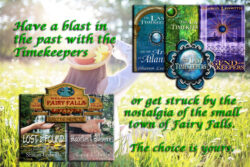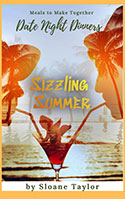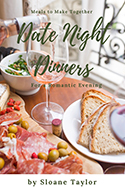The Thing About Pen Names
August 2, 2021 | Author Friend Promo
From Sharon Ledwith
 Who are you? No, I really want to know. For months I’ve been hanging with a great group of authors. Many of those authors have pen names—a.k.a. PSEUDONYMS. I still don’t know one particular author’s name that I’ve come to know well and count on for support and help. I find pen names funny. Don’t get me wrong, I understand the concept of a “secret identity.” The authors want to keep their private lives private. Their pen name is their business name. Yet, on Facebook, there’s a real photo of them next to their fake name. I find that hilarious—like unmasking Batman or taking off Clark Kent’s glasses.
Who are you? No, I really want to know. For months I’ve been hanging with a great group of authors. Many of those authors have pen names—a.k.a. PSEUDONYMS. I still don’t know one particular author’s name that I’ve come to know well and count on for support and help. I find pen names funny. Don’t get me wrong, I understand the concept of a “secret identity.” The authors want to keep their private lives private. Their pen name is their business name. Yet, on Facebook, there’s a real photo of them next to their fake name. I find that hilarious—like unmasking Batman or taking off Clark Kent’s glasses.
Pen names intrigue me, so I did a little digging, and came up with these tidbits compliments of the Daily Writing Tips blog:
Authors throughout the centuries have used pen names. You’ve probably heard of the following authors:
- George Orwell (real name Eric Arthur Blair)
- George Eliot (real name Mary Ann Evans)
- Lewis Carroll (real name Charles Lutwidge Dodgson)
Authors use pen names for a wide variety of reasons. These include:
- To remain anonymous (especially if producing a politically or religiously sensitive work)
This is perhaps less common today, but sometimes occurs if a very personal or sexually explicit work is written.
- To change or conceal gender
In the 18th century, many female authors used male pen names in order to be taken seriously. George Eliot is the most famous example, though the Bronte sisters all wrote under pen names too.
This trend still continues in some genres today: for example, female fantasy or science fiction authors will often use a gender-neutral name (Robin Hobb) or use their initials (J.K. Rowling) as the genre has traditionally attracted more male readers and authors. A similar effect can be seen when male authors adopt a female pen name to write a chick lit or romance novel.
- To write across multiple genres
Lewis Carroll also wrote mathematical textbooks under his real name (Charles Dodgson), so adopted a pen name for his children’s novels. Authors today who write in multiple genres will sometimes use a different name for each one, to avoid confusing readers.
- To recover from poor sales or reputation
If an author’s real name has attracted criticism, it may be worth considering changing to a pen name. Sometimes, the first few novels by a new author don’t sell well in bookshops, leading publishers to reject future submissions. Therefore, changing to a pen name is often recommended in these circumstances.
So there you have it. If you are trying to build up a reputation in multiple genres, using a pen name (or several pen names) is probably a good idea. Even if your real name (or current pen name) has been slammed or attracted heavy criticism, switching to a new name could be a good way to go. However, adopting a pen name means building up your reputation again from scratch—a lot of work, but it may be well worth the time and effort to do so.
A final thought: if you’re using a pen name in an attempt to remain anonymous, be aware that people are often curious when they suspect a secret—you may well be “discovered” under that mask you worked so hard to create. In some cases, this can lead to great publicity, but if your publisher or fans suspects you of trying to conceal a less-than-stellar past, it may backfire.
To be you, or not to be you? What’s your choice? I’ve decided to stick with my real name.
Here’s a glimpse of the premises of both my young adult series.
Mysterious Tales from Fairy Falls Teen Psychic Mysteries…
Imagine a teenager possessing a psychic ability and struggling to cope with this freakish power while trying to have a normal life. Now, imagine being uprooted and forced to live in a small tourist town where nothing much ever happens. It’s bores-ville from the get-go.
Welcome to Fairy Falls. Expect the unexpected…
The Last Timekeepers Time Travel Adventures…
Children are the keys to our future. And now, children are the only hope for our past.
Chosen by an Atlantean Magus to be Timekeepers—legendary time travelers sworn to keep history safe from the evil Belial—five classmates are sent into the past to restore balance, and bring order back into the world, one mission at a time.
The Last Timekeepers Time Travel Adventure Series:
The Last Timekeepers and the Dark Secret, Book #2 Buy Links:
MIRROR WORLD PUBLISHING ׀ AMAZON ׀ BARNES & NOBLE ׀
The Last Timekeepers and the Arch of Atlantis, Book #1 Buy Links:
MIRROR WORLD PUBLISHING ׀ AMAZON ׀ BARNES & NOBLE ׀
Legend of the Timekeepers, prequel Buy Links:
MIRROR WORLD PUBLISHING ׀ AMAZON ׀ BARNES & NOBLE ׀
Mysterious Tales from Fairy Falls Teen Psychic Mystery Series:
Lost and Found, Book One Buy Links:
MIRROR WORLD PUBLISHING ׀ AMAZON ׀ BARNES & NOBLE ׀
Blackflies and Blueberries, Book Two Buy Links:
MIRROR WORLD PUBLISHING ׀ AMAZON ׀ BARNES & NOBLE
 Sharon Ledwith is the author of the middle-grade/YA time travel series, THE LAST TIMEKEEPERS, and the teen psychic mystery series, MYSTERIOUS TALES FROM FAIRY FALLS. When not writing, researching, or revising, she enjoys reading, exercising, anything arcane, and an occasional dram of scotch. Sharon lives a serene, yet busy life in a southern tourist region of Ontario, Canada, with her hubby, one spoiled yellow Labrador and a moody calico cat.
Sharon Ledwith is the author of the middle-grade/YA time travel series, THE LAST TIMEKEEPERS, and the teen psychic mystery series, MYSTERIOUS TALES FROM FAIRY FALLS. When not writing, researching, or revising, she enjoys reading, exercising, anything arcane, and an occasional dram of scotch. Sharon lives a serene, yet busy life in a southern tourist region of Ontario, Canada, with her hubby, one spoiled yellow Labrador and a moody calico cat.
Learn more about Sharon Ledwith on her website and blog. Stay connected on Facebook and Twitter, and Smashwords. Look up her Amazon Author page for a list of current books. Be sure to check out THE LAST TIMEKEEPERS TIME TRAVEL SERIES Facebook page.





